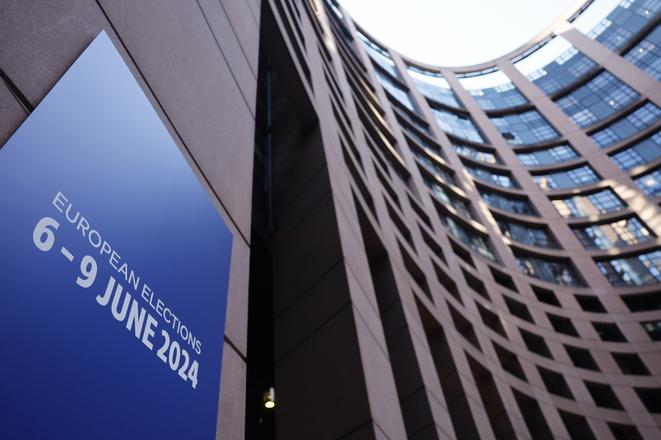After ten years, Smer is close to winning the European elections, according to the latest data from the NMS Market Research Slovakia agency. Support for the current leader of the polls in the European elections, the opposition party Progresívne Slovensko, is no longer growing.
Smer is attracting more new voters after the attack on its chair and premier Robert Fico. The party has been blaming the opposition and the media for the attack since the day it happened.
Smer has even used the attack in the campaign. From May 15, when the attack happened, until the end of May, Smer held eleven campaign events titled “For Robert Fico, for Slovakia”.
In Brezno, central Slovakia, pro-Russian Smer MP Ľuboš Blaha has recently held a meeting with Smer voters, where he also talked about the attack.
“Today, there is no doubt that the assassin sent love letters to President Čaputová, how beautiful, wonderful, wise and courageous she is. He went to opposition protests, where he shouted ‘Glory to Ukraine!’ And he himself admitted that he tried to assassinate the prime minister only because he has a different opinion about [the public broadcaster] RTVS and similar nonsense,” Blaha said misleadingly, as quoted by the Denník N daily.
The attacker, who did not agree with the government’s selected policies, including the planned cancellation of RTVS and the halting of the Slovak armed forces’ military support of Ukraine, did not send letters to the president. Nor is it entirely clear what political views the attacker holds, despite attending several protests organised by the opposition.
“Where has the hatred spread for years by the liberal media and the progressive opposition led to?” Blaha went on to ask.
Speaking of the polls, at the beginning of May, 17.3 percent of voters wanted to support Smer in the European elections, according to the NMS data at the time. Between May 30 and June 3, Fico’s party grew by 4.9 percent and is supported by 22.1 percent of respondents at present.
Smer falls behind the PS party, which has 23.2 percent, by only 1.1 percent. Since this difference is small, it is not possible to clearly determine which of the two parties would emerge as the winner of the elections.
In the remaining time until the elections, which will take place on June 8 in Slovakia, NMS analyst Mikuláš Hanes assumes, on the basis of other data - an increase in voter potential and the voter core - that the growth of Smer will continue.
“Smer could replace PS in first place during the last days of the campaign,” he opines.
The electorate of the Smer party increased from 11.8 to 16.3 percent after the attack. Also, compared to the beginning of May, Smer's potential grew by 5.5 percent, to 28.4 percent.
The support for other parties did not change at all, or only by a few tenths of a percent, compared to the first half of May.
The NMS survey assumes that six parties with the support of at least 5 percent of voters will be represented in the European Parliament: Hlas, the far-right Republika, SaS, KDH, in addition to Smer and PS.
At the time of data collection, a turnout of 32.1 percent was estimated.
According to the survey conducted by Median SK agency between May 21 and 27 on a sample of 1,006 respondents, Smer would have won the elections on 22.5 percent of votes. Forty-four percent of respondents told the pollster they would definitely take part in the EP elections, with 15 percent rather tending to go to the polls.
The latest Ipsos poll also shows that Smer may win the elections. In it, Smer came first with 24.6 percent, followed by PS with 21.9 percent. Each of them would win four seats in the European Parliament. Hlas (11.2 percent) would obtain two seats. Republika, SaS, Demokrati and Aliancia would get one seat each. Ipsos estimates a turnout to reach 35 percent. The agency carried out the poll between May 30 and June 4, surveying 1,225 respondents.



 European elections will take place in Slovakia on June 8, 2024. (source: AP/TASR)
European elections will take place in Slovakia on June 8, 2024. (source: AP/TASR)